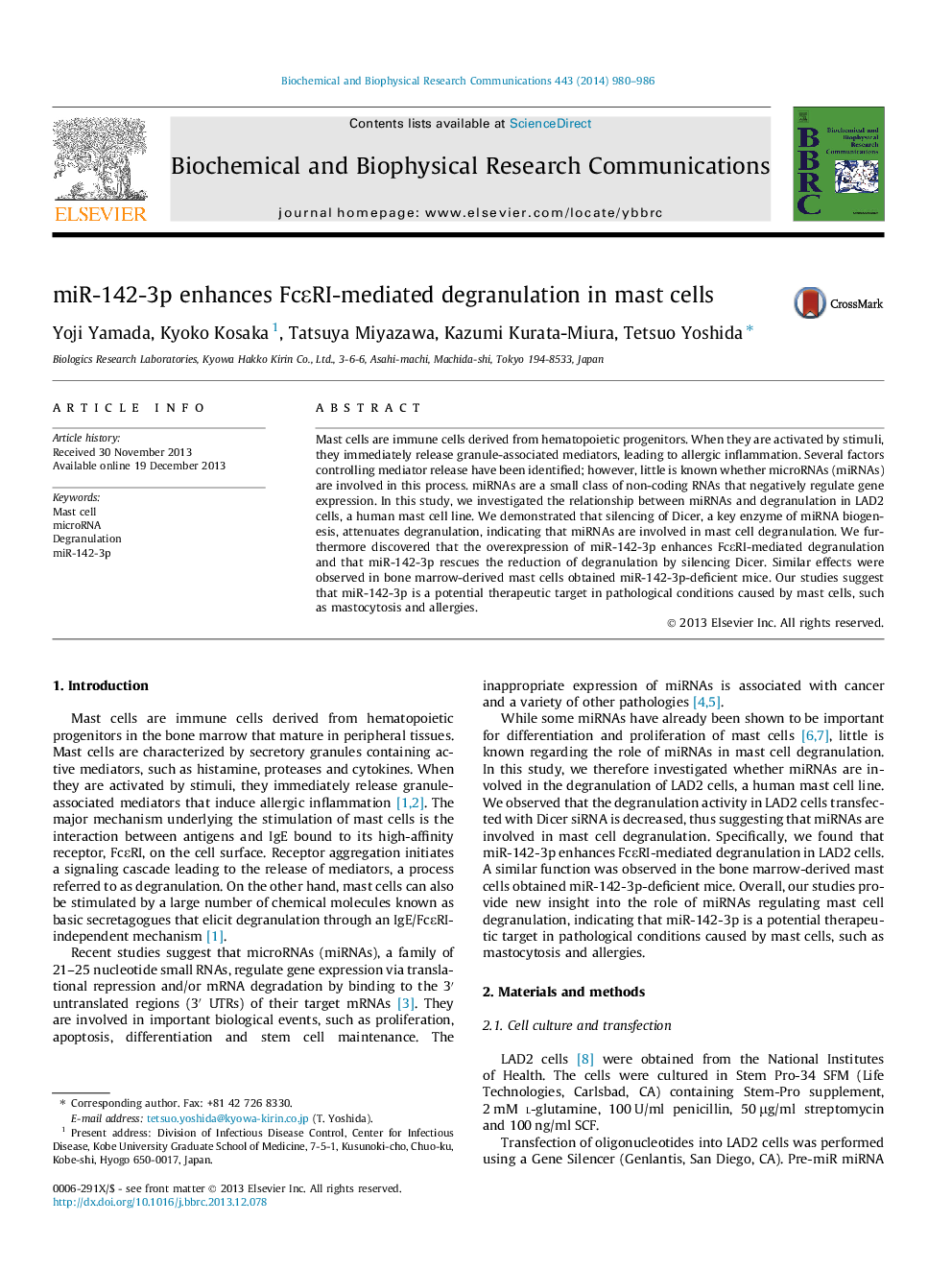| Article ID | Journal | Published Year | Pages | File Type |
|---|---|---|---|---|
| 10757082 | Biochemical and Biophysical Research Communications | 2014 | 7 Pages |
Abstract
Mast cells are immune cells derived from hematopoietic progenitors. When they are activated by stimuli, they immediately release granule-associated mediators, leading to allergic inflammation. Several factors controlling mediator release have been identified; however, little is known whether microRNAs (miRNAs) are involved in this process. miRNAs are a small class of non-coding RNAs that negatively regulate gene expression. In this study, we investigated the relationship between miRNAs and degranulation in LAD2 cells, a human mast cell line. We demonstrated that silencing of Dicer, a key enzyme of miRNA biogenesis, attenuates degranulation, indicating that miRNAs are involved in mast cell degranulation. We furthermore discovered that the overexpression of miR-142-3p enhances FcεRI-mediated degranulation and that miR-142-3p rescues the reduction of degranulation by silencing Dicer. Similar effects were observed in bone marrow-derived mast cells obtained miR-142-3p-deficient mice. Our studies suggest that miR-142-3p is a potential therapeutic target in pathological conditions caused by mast cells, such as mastocytosis and allergies.
Related Topics
Life Sciences
Biochemistry, Genetics and Molecular Biology
Biochemistry
Authors
Yoji Yamada, Kyoko Kosaka, Tatsuya Miyazawa, Kazumi Kurata-Miura, Tetsuo Yoshida,
